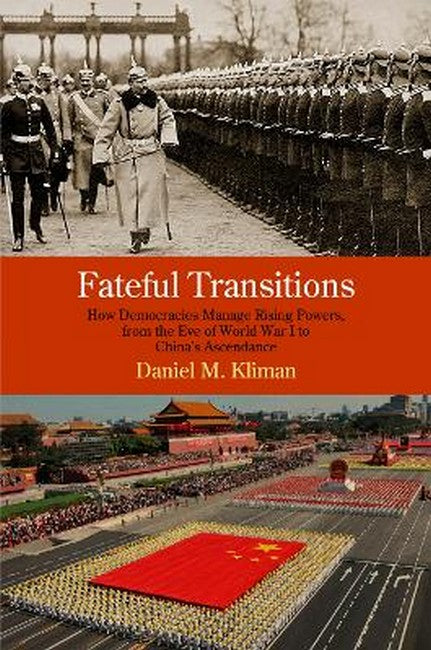Daniel M. Kliman is Senior Adviser for Asia at the German Marshall Fund of the United States and a fellow at the Truman National Security Project.
Request Academic Copy
Please copy the ISBN for submitting review copy form
Description
"Katagiri's excellent study joins a growing body of literature that tries to explain how non-state actors defeat powerful nation-state opponents in asymmetric contests. Adapting to Win is unique in its approach." (Choice) "Nothing will be more important to twenty-first-century strategy than a global approach to managing the rise of both China and India as their economies and strategic options increase. The wisdom and history in Fateful Transitions are a good place to start." (Admiral James Stavridis, Dean of The Fletcher School of Law and Diplomacy at Tufts University) "This is an important book leveraging history to understand the problem of declining U.S. hegemony and a rising China. With its lucid writing style and accessible approach, Fateful Transitions should have wide appeal for scholars, students, and policymakers. It may well be the best book on relations among the great powers in the coming global transition." (Bruce Russett, Yale University) "How do democracies respond to the emergence of new great powers? Daniel Kliman's timely, informative, and persuasive new book shows that the answer depends on a rising state's domestic political system. Fast-growing powers that are transparent and open will be less threatening to other democracies than closed and secretive authoritarian regimes. This finding has important and potentially troubling implications for China's future relations with the United States, Japan, and the world's other major democracies." (Aaron L. Friedberg, Princeton University)

